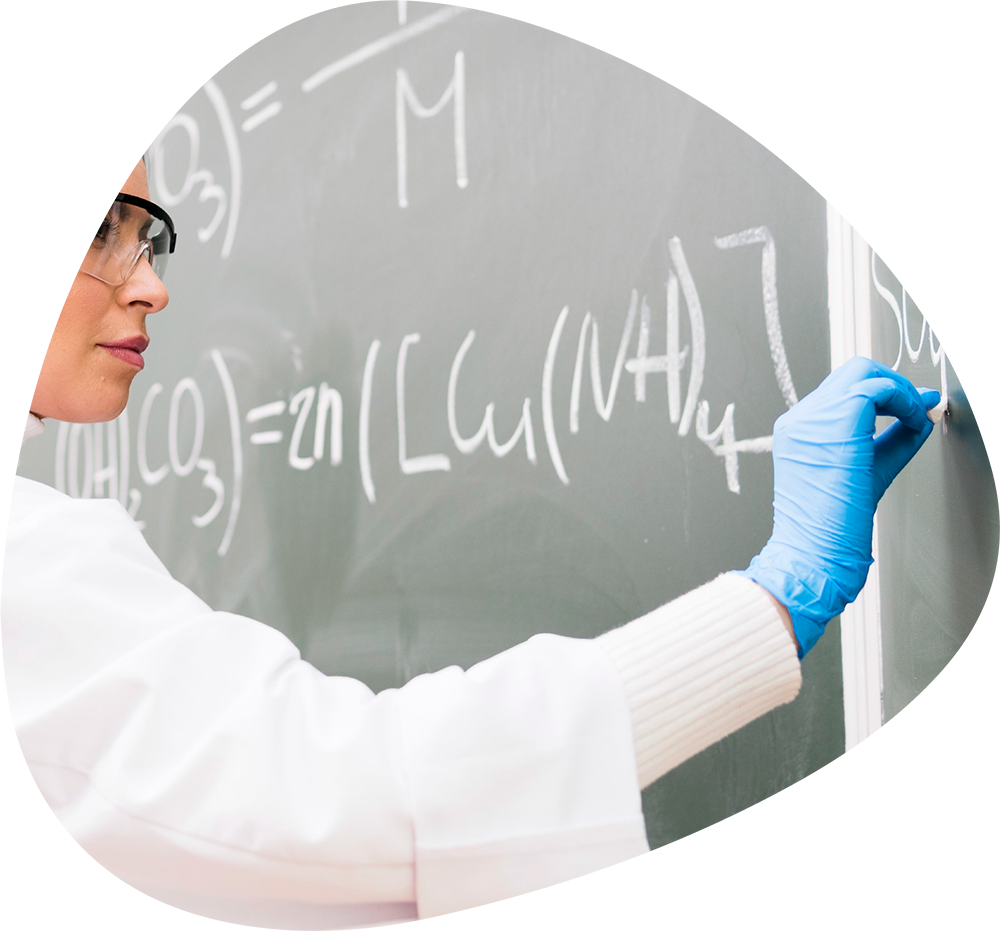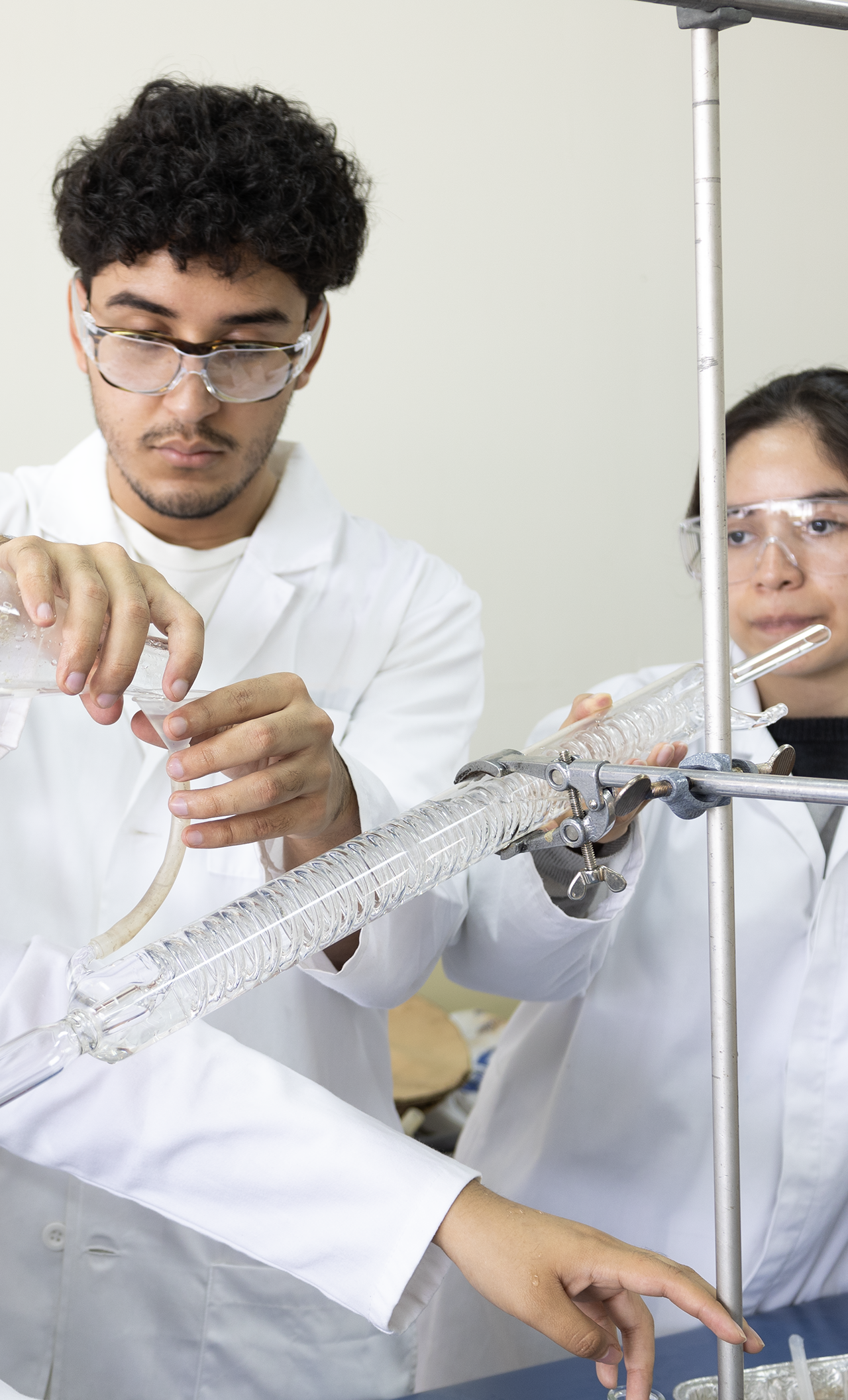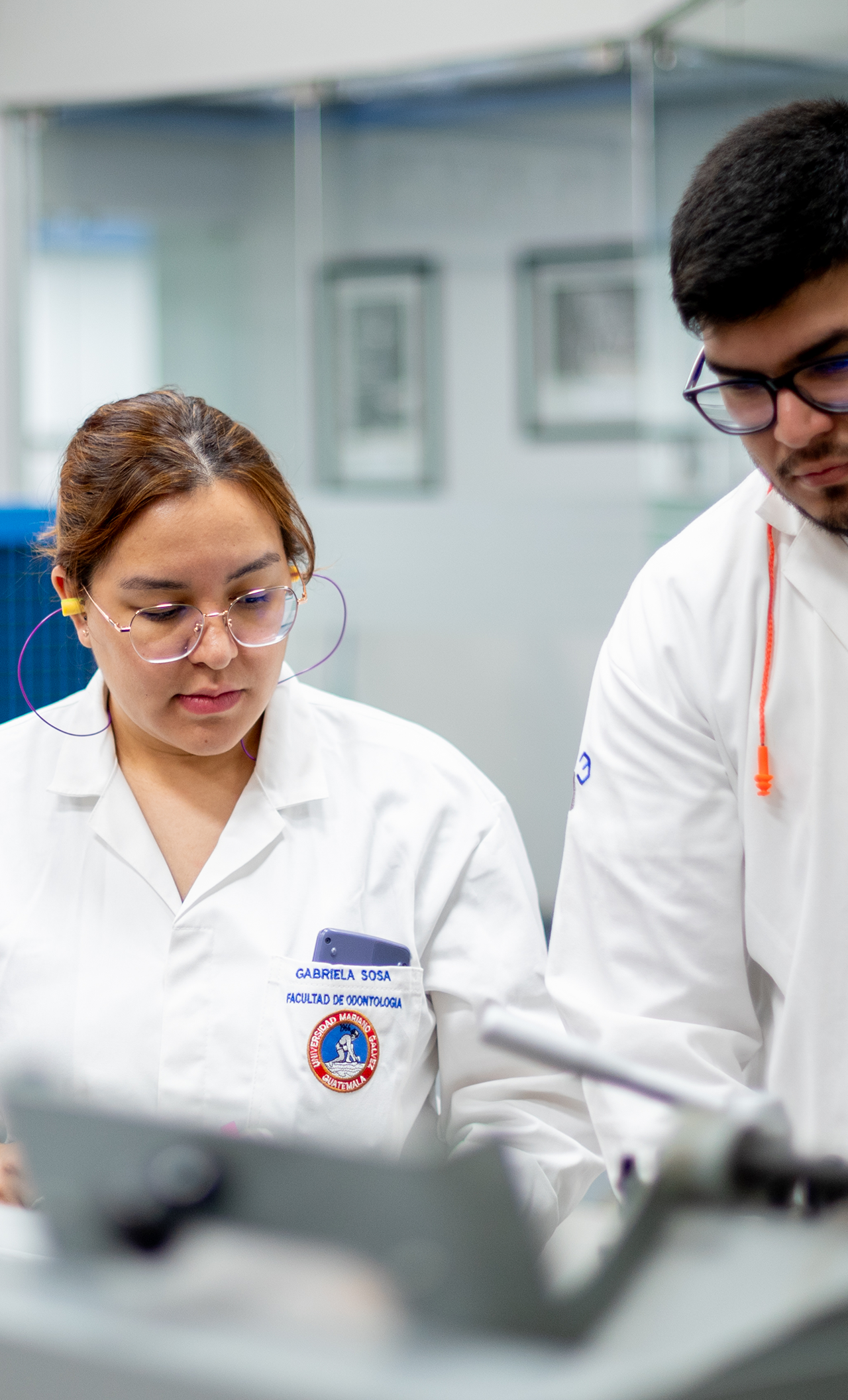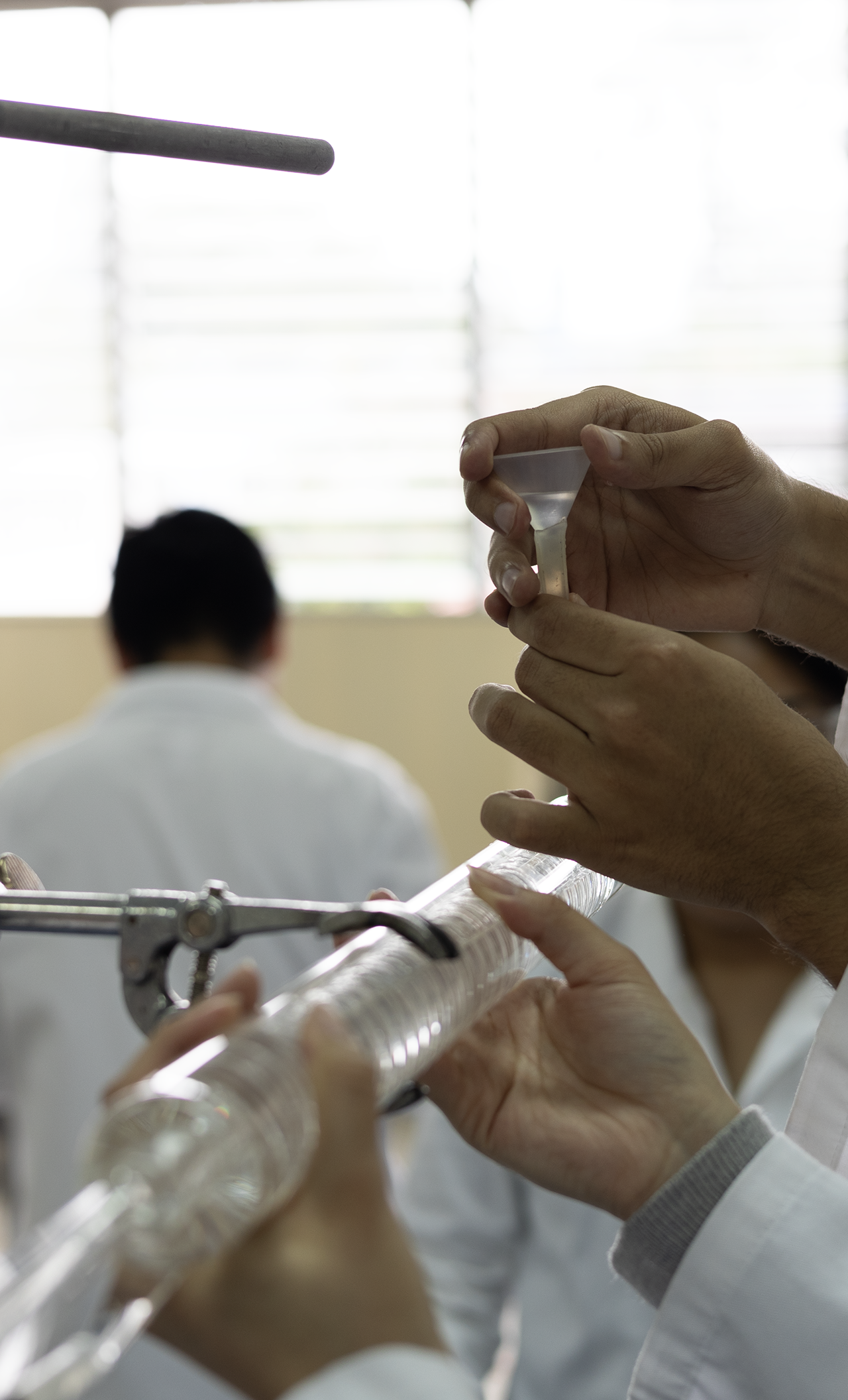
- Bachelor's Degree in
- Physics
- Degree to be obtained
- Bachelor's Degree in Physics
- Academic degree
- Bachelor's Degree
- Duration
- 5 years
- Modality
- In-person
- Schedule:
- Daily Morning Session
- Career description
-
The Bachelor's Degree in Physics is focused on the study of the fundamental laws that govern nature and the universe. Students learn about mechanics, thermodynamics, electromagnetism, quantum physics, relativity, astronomy, and more.
- What will you learn during the program?
-
Students learn to conduct research, collect and analyze data, develop theories and contribute to knowledge in a specific field, such as mathematics, biology, chemistry, among others. In addition, participants acquire skills in problem solving, communication and collaboration in scientific projects.
Gallery
AdmissionProfile
The expected admission profile for a Bachelor's Degree in Physics includes having a strong interest in science, solid mathematical and analytical skills, study and self-discipline skills, as well as problem-solving skills, math and science background, scientific curiosity, ability to work in a collaborative environments, scientific communication skills, and computer literacy.
Graduate'sProfile
A deep understanding of fundamental physical principles and theories.
Advanced mathematical and analytical skills to solve complex problems.
Ability to design, perform and analyze scientific experiments.
Knowledge in various areas of physics, such as mechanics, electromagnetism, thermodynamics, relativity and quantum mechanics.
Aptitude for abstraction and critical thinking.
Ability to communicate scientific findings effectively.
Preparation for careers in research, education, technology, engineering, astronomy and other related fields.
Flexibility to adapt to a wide range of scientific and technical challenges.
Career Opportunities

1. Work in research laboratories, universities or academic institutions to carry out research in theoretical or experimental physics.
2. Becoming a physics teacher in secondary schools or institutions of higher education.
3. Apply knowledge in physics in fields such as engineering, information technology, optics, electronics, and manufacturing.
4. Get a job as a data scientist, using analysis and modeling skills to extract useful information from large data sets.
5. Collaborate in the development of medical technologies, research in radiation therapy and diagnostic imaging, and other applications of physics in medicine.
6. Work on research and development of renewable energy sources, natural resource management, and environmental sustainability.
7. Participate in the research and development of aerospace technologies, satellites, defense and security systems.
8. Apply quantitative analysis and mathematical modeling skills in banking, finance and risk management.
9. Provide consulting in problem solving and quantitative analysis to companies and organizations.
10. Work in government agencies, research institutions and non-profit organizations, contributing to data-driven policy and analysis.
Curriculum
| 1° Ciclo | ÁLGEBRA SUPERIOR | DESARROLLO HUMANO Y PROFESIONAL | FÍSICA I | GEOMETRÍA PLANA Y DEL ESPACIO | QUÍMICA INORGÁNICA I | |
|---|---|---|---|---|---|---|
| 2° Ciclo | ÁLGEBRA LINEAL I | CÁLCULO I | FÍSICA II | HISTORIA Y FILOSOFÍA DE LA CIENCIA | MATEMÁTICA DISCRETA | PROGRAMACIÓN PARA LA CIENCIA Y LA INGENIERÍA |
| 3° Ciclo | ÁLGEBRA LINEAL II | CÁLCULO II | ESTADÍSTICA Y PROBABILIDAD PARA LA CIENCIA Y LA INGENIERÍA | FÍSICA III | RAZONAMIENTO FÍSICO DEDUCTIVO | |
| 4° Ciclo | CÁLCULO VECTORIAL Y MULTIVARIABLE | ECUACIONES DIFERENCIALES ORDINARIAS | FÍSICA EXPERIMENTAL I | FÍSICA MODERNA | ÓPTICA Y ACÚSTICA | |
| 5° Ciclo | ECUACIONES DIFERENCIALES PARCIALES | FÍSICA EXPERIMENTAL II | MECÁNICA CLÁSICA I | TEORÍA ELECTROMAGNÉTICA I | TERMODINÁMICA | |
| 6° Ciclo | ANÁLISIS DE VARIABLE COMPLEJA | MECÁNICA CLÁSICA II | MÉTODOS MATEMÁTICOS PARA LA FÍSICA I | RELATIVIDAD ESPECIAL | TEORÍA ELECTROMAGNÉTICA II | |
| 7° Ciclo | ANÁLISIS NUMÉRICO | MECÁNICA CLÁSICA III | MECÁNICA CUÁNTICA I | MÉTODOS MATEMÁTICOS PARA LA FÍSICA II | TEORÍA ELECTROMAGNÉTICA III | |
| 8° Ciclo | INTRODUCCIÓN A FÍSICA DE PARTÍCULAS | INTRODUCCIÓN A LA RELATIVIDAD GENERAL | MECÁNICA CUÁNTICA II | MECÁNICA ESTADÍSTICA | TEORÍA DE GRUPOS | |
| 9° Ciclo | FÍSICA DEL ESTADO SÓLIDO | INTRODUCCIÓN A LA COSMOLOGÍA | RADIACIÓN IONIZANTE | SEMINARIO DE ESPECIALIZACIÓN I | SEMINARIO DE ESPECIALIZACIÓN II | |
| 10° Ciclo | SEMINARIO DE ESPECIALIZACIÓN III | SEMINARIO DE ESPECIALIZACIÓN IV | SEMINARIO DE ESPECIALIZACIÓN V | SEMINARIO DE ESPECIALIZACIÓN VI | SEMINARIO DE LA INVESTIGACIÓN |


